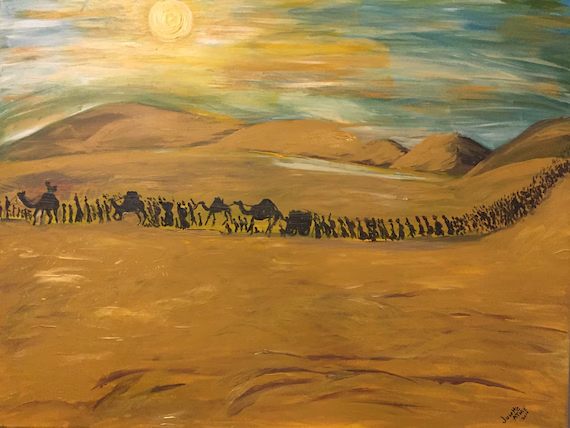Vision on a Mountain
Jesus on the Beatitudes
Many people had listened to Jesus teaching them about God, and seen the wonderful things he had done. Jesus asked his twelve disciples.
'Who do the people say I am?
'Some say you are John the Baptist come alive again, and some say you are a prophet, perhaps Elijah." replied the disciples.
And who do you say I am? asked Jesus.
Peter answered at once.
You are the promised King, the Son of God.
Jesus was very pleased with Peter's answer.
Peter, you are blessed, for God Himself has given you this understanding.
You are the rock on which I will build my Church, he said.
Now Jesus could prepare his disciples for what was to come.
Soon I shall have to go to Jerusalem. There they won't accept me as God's King. They will try me, condemn me and put me to death but, after three days. I will live again.
Then he warned his disciples that they too would have to suffer. 'Anyone who follows me, he said must give up the riches and comfort of this world, but they will be greatly rewarded in Heaven.
About a week later, Jesus took Peter. James and John with him up high on a mountain to pray. Suddenly the three disciples saw Jesus change: his face shone like the sun and his clothes looked as white as snow.
Then two other shining figures appeared and talked to Jesus. They were Moses and the prophet Elijah.
The disciples were terrified. Then a bright cloud drifted over the sky, and a voice said. 'This is my Son. Listen to him.
The cloud passed, and the disciples were alone again on the mountain with Jesus.
As they walked down the mountain, Jesus said;
'Tell no one what you have seen today until my Father brings me back to life again after my death.
In Christian teachings, the transfiguration is a pivotal moment, and the setting on the mountain is presented as the point where human nature meets God: the meeting place of the temporal and the eternal, with Jesus as the connecting point, acting as the bridge between heaven and earth.
The Transfiguration of Jesus is an event described in the New Testament, where Jesus is transfigured and becomes radiant in glory upon a mountain. The Synoptic Gospels (Matthew 17:1–8, Mark 9:2–8, Luke 9:28–36) recount the occasion, and the Second Epistle of Peter also refers to it (2 Peter 1:16–18).
↪wikiwand: Transfiguration of Jesus
The concept of the transfiguration as a preview and an anticipation of the resurrection includes several theological components. On one hand it cautions the disciples, and therefore the reader, that the glory of the transfiguration, and the message of Jesus, can only be understood in the context of his death and resurrection, and not simply on its own.











Comments
Post a Comment